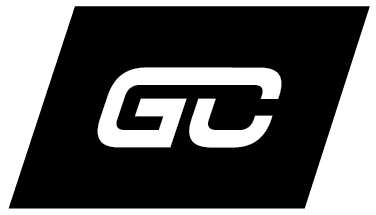PERSONAL BRANDING - GETTING PAST A 'FAN BRAND'
“When I was putting my goals, assists and penalty minutes on my resume...I knew I was f****ed."
(from a retired NHL player)
If an athlete’s social media profile or CV is based solely on athletic accomplishments, they are missing a massive opportunity by only having what I call a ‘fan brand.’ Yes, similar to George Costanza claiming that he coined the phrase ‘pardon my french,’ I am claiming the phrase ‘Fan Brand.’
A ‘Fan Brand’ is a superficial attempt to generate interest and draw attention from the general public with limited or zero strategic impetus. An example could be a fundamental personal website or social media account that talks about athletic stats and accomplishments. Time after time (to quote Cyndi Lauper), I come across athlete websites and social media accounts that lack depth and purpose.
An even greater missed opportunity is when an athlete ‘authors’ a book that is full of fluff and ‘look at me’ stories completely centered on their athletic stories. It is a missed opportunity because it lacks a cohesive strategy that evolves the brand from ‘fan brand’ to ‘personal brand.’
A ‘fan brand’ is weak and has ‘no legs.’ At some point in an athlete’s life, the athletic accomplishments, on their own, become less and less relevant and are not a sustainable long-term strategy for generating interest and opportunities.
A personal brand should go deep. It should provide profound insight into an athlete’s story and passions that goes way beyond athletic accomplishments. It should communicate transferable competencies, behaviours, and interests that can connect to a relevant business or philanthropic needs and challenges.
As Steph Curry once said, “there's more to me than just this jersey I wear.”
By no means am I suggesting that an athlete should ignore communicating their athletic accomplishments. The athletic portion of the brand is incredibly unique and is the foundation of a personal brand. It should be incorporated and leveraged. However, the brand has to keep evolving throughout the athletic career. Athletes enter elite sports with an athletic brand but should exit with a personal brand.
A strong personal brand, a brand that associates and connects with audiences who are not ‘fans’ can also benefit your athletic careers.
Over the years, we at Game Change have come across athletes who developed a strong personal brand, focusing on passions and interests off the playing surface. However, those outside interests have paid (literally) dividends on the playing surface. We know an NHL hockey player who extended his career by a few years (which translated into a few extra millions in his pocket) because he was well known in the community for his extra-curricular interests and activities. He was a 5th or 6th defenseman throughout his career, but because he had a strong personal brand, management wanted him around because he was not only a consistent performer on the ice, he was a great representative in the community and role model in the locker room. He was a role model. That gave him a competitive edge over other upcoming defensemen who were looking to take his role on the team. They probably had ‘fan brands.’
Key things to consider for developing your personal brand:
What is your purpose?
What is your unique story/offering?
Who are your trying to engage with?
What opportunities are you trying to attract?
Is your brand sustainable long term and outside of sports?
To generate lifelong opportunities and maximize the experience as an elite athlete, carefully and strategically build this brand. Athletes are people and offer so much more than the jersey they wear and playing stats. If you remain a ‘fan brand,’ time will pass by, and your brand becomes irrelevant. Leverage the sweater on your back and realize the world of opportunity that exists for athletes who establish a strong personal brand.
Game Change was founded in 2011 to serve and enhance the athlete development needs of major professional and elite sport organizations and athletes. Game Change specializes in customized research and assessment services, the development of applied interventions and resources designed to provide long-term positive outcomes for organizations and individual athletes. Game Change believes strongly in sport as a catalyst for societal change and adheres to the philosophy of ‘changing the world one athlete at a time’.


